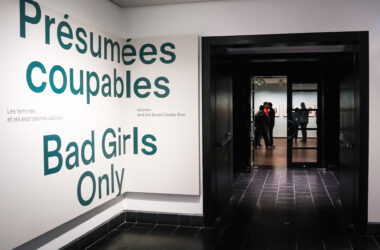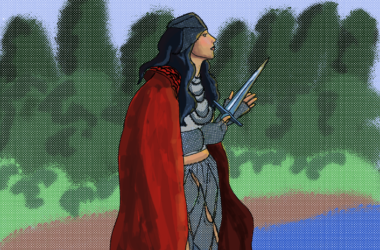On Feb. 5, University of the Streets Café hosted an inclusive discussion about visual art as a tool for community building and its contributions to social justice. The talk was broad in scope and touched on subjects such as art’s commodification, subsequent impacts on gentrification, and the limits of art’s accessibility. Panelists also discussed art’s potential as a site of resistance against violence, racism, and other forms of oppression. Local visual artist Emma Harake, the talk’s moderator, raised concerns about the nonprofit artistic sector and the role of established institutions in both viewing and producing art. Guest speakers contributed compelling thoughts to the talk, drawing on their personal and professional experiences with community-organizing and visual art.
Johnny El-Hage, a multidisciplinary artist and founder of Abjad Howse, a creative space that encourages Arabic artists in Canada, discussed building inclusive spaces for marginalized artists to showcase their work outside of traditional gallery spaces. He also discussed his experiences with hosting inclusive events for racialized artists in Montreal. These events can take the form of open mics and celebrations of music, poetry, and talent in racialized neighbourhoods.
El-Hage analyzed the problematic nature of a homogenized national identity, systemic discrimination, and how art can be used to empower marginalized communities.
“Art and public practices play a significant role in reproducing and reconstructing racial, gender, and class difference in a way that is positive,” El-Hage said. “Art is so powerful when it operates outside the state and its dominating power, forming a power of its own. When we talk of meaningful art, it is an art that meets people in their communities and opens democratic spaces that allow experimentation and imagination.”
Similarly, artist and McGill Social Work graduate student Salima Punjani spoke about spreading multiculturalism within Montreal. Punjani explained the themes of her work, such as family storytelling, as emblematized in her photography project, Moms of Montreal. Moms of Montreal offers a glimpse into different family lives through photography to build a sense of community and appreciation for diversity.
Saskatoon-based artist Jane Reväe McWhirter uses art to promote personal growth and community healing in at-risk youth. McWhirter brought up her past struggles with substance abuse and self-worth, describing her work as an artist at Saskatoon Community Youth Arts Programming (SCYAP) as pivotal in her journey of self-acceptance.
“[Working at SCYAP] was the first time in my life that I really felt a sense of confidence, and [it] sparked me with wanting more in life,” McWhirter said. “This program really gave me the space to be vulnerable [by] using art as a powerful tool to push us forward. It started with something as small as a painting where you can start small, see something that you make, feel proud of it, and then continue to build your confidence.”
McWhirter and the other guest speakers did not shy away from discussing the fact visual art has often been commodified and can be publicly inaccessible. Panelists were hopeful, however, that community organizers can still use art as a tool to empower the marginalized by offering an outlet for expression.









